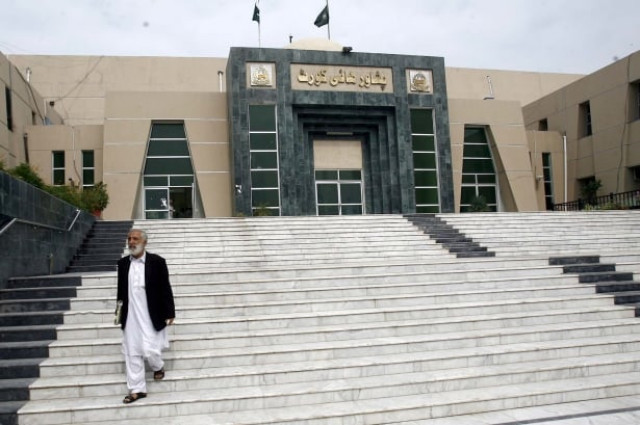Now you sue me, now you don’t: Is the customer always right?
Exclusive courts to hear cases of consumer complaints.

A recent Peshawar High Court (PHC) notification, which relieved district and sessions judges from their duties so they could deliberate on cases at seven consumer courts in Khyber-Pakhtunkhwa (K-P), aims to protect consumer rights.
The high court observed consumer rights had been openly denied due to lack of government mechanism to keep checks and balances.
The seven judges include Khawaja Wajihuddin who will take charge of a consumer court in Peshawar, Anwar Hussain in Mardan, Subhan Sher in Abbottabad, Shoaib Khan in DI Khan, Muhammad Adil Khan in Swat, Nasim Akbar in Kohat and Zamarrud Khan in Bannu.
The judges were relieved of their earlier duties after a notification was issued on November 19. This was followed by the approval of a summary to establish exclusive consumer courts on seven divisional levels.
Consumer rights are a provincial subject under the Constitution and only the provinces have the authority to introduce legislation on the matter. K-P took the lead to pass a bill titled NWFP (now K-P) Consumer Protection Act in 1997.
“It will help [to make] prompt decisions in cases. Normally district and sessions judges dealt with such cases,” said Advocate Saifullah Kakakhel. However, consumer rights cases would be mixed up with criminal and civil suits so it was only natural that decisions would be delayed, he said.
He cited a case against the Peshawar Model School, adding there were few suits against educational institutions to control the fee structure. “With such special courts in the province, any person or organisation has the power to go to court if they are facing problems related to consumer goods or services.”
“My mobile SIM was closed by the company so I filed a case in the court of a district and sessions judge who was additionally serving at a consumer court as well,” said Musaratullah, a litigant. “However, when a new judge took over the case, the problem was solved in a single hearing and authorities were ordered to open the SIM.”
He added consumers faced numerous problems in markets, but could now go to special consumer courts. “Shopkeepers and other businessmen will no longer be able to cheat consumers.”
Advocate Amjid Khan lauded the decision to introduce consumer courts, saying cases related to adulterated food, fake medicines, high prices of daily commodities and fees of teachers and doctors could be tackled.
“The district governments are not performing their duties, but now every consumer can fight for their rights by approaching these courts,” he said.
The lawyer went on to say that the government needed to spread awareness among people about the exclusive consumer courts and how to file cases.
A court official said around 300 cases being heard by a Peshawar district and sessions judge had been transferred to the consumer court judge. He said the cases would be decided in a timely manner because they are no longer mixed up with criminal and civil suits.
The act says unfair trade practice is when a “person, for the purpose of sale, use or supply of any goods or provision of any service or for their promotion, adopts one or more of the following practices, causes loss or injury through hoarding, black-marketing, adulteration, selling of expired drugs, food items and commodities unfit for human consumption.
“Also charging for the goods and services in excess of the price fixed by an authority authorised to do so under any law for the time being in force or in furtherance of such sale, use or supply, makes any statement, whether orally or in writing or by chalking on walls or through signboards or by distributing pamphlets or by publication in any manner including electronic media.”
Published in The Express Tribune, November 30th, 2014.













COMMENTS
Comments are moderated and generally will be posted if they are on-topic and not abusive.
For more information, please see our Comments FAQ